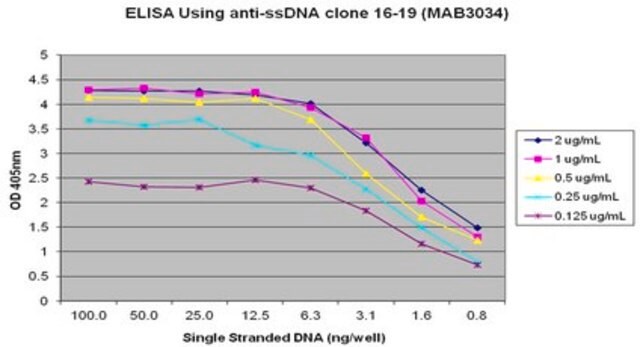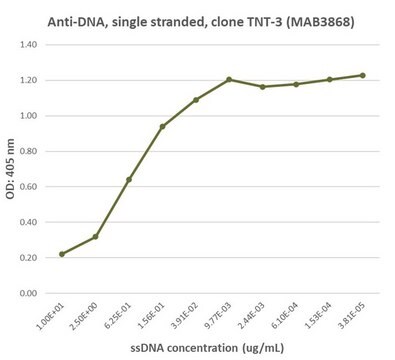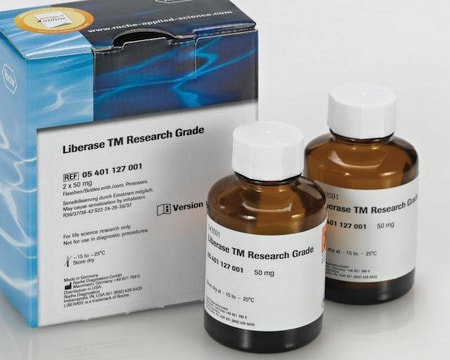MAB3299
Anti-DNA Antibody, single stranded specific, clone F7-26
clone F7-26, Chemicon®, from mouse
Synonym(s):
Anti-single stranded DNA, Single-stranded DNA antibody
About This Item
Recommended Products
biological source
mouse
Quality Level
antibody form
purified immunoglobulin
antibody product type
primary antibodies
clone
F7-26, monoclonal
species reactivity (predicted by homology)
all
manufacturer/tradename
Chemicon®
technique(s)
flow cytometry: suitable
immunocytochemistry: suitable
immunohistochemistry (formalin-fixed, paraffin-embedded sections): suitable
isotype
IgM
shipped in
dry ice
target post-translational modification
unmodified
General description
Specificity
Immunogen
Application
2. Immunohistochemistry: formalin fixed, paraffin embedded tissues & 4% PF frozen tissues (special detection protocol required. FACS analysis (special protocol required),
Physical form
Storage and Stability
Analysis Note
Apoptotic cells
Other Notes
Legal Information
Not finding the right product?
Try our Product Selector Tool.
Storage Class Code
12 - Non Combustible Liquids
WGK
WGK 2
Flash Point(F)
Not applicable
Flash Point(C)
Not applicable
Certificates of Analysis (COA)
Search for Certificates of Analysis (COA) by entering the products Lot/Batch Number. Lot and Batch Numbers can be found on a product’s label following the words ‘Lot’ or ‘Batch’.
Already Own This Product?
Find documentation for the products that you have recently purchased in the Document Library.
Our team of scientists has experience in all areas of research including Life Science, Material Science, Chemical Synthesis, Chromatography, Analytical and many others.
Contact Technical Service








